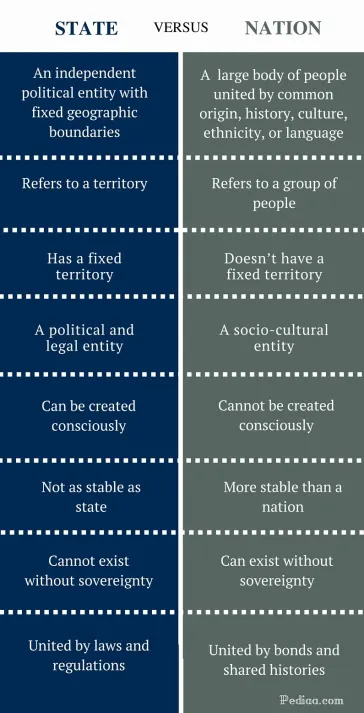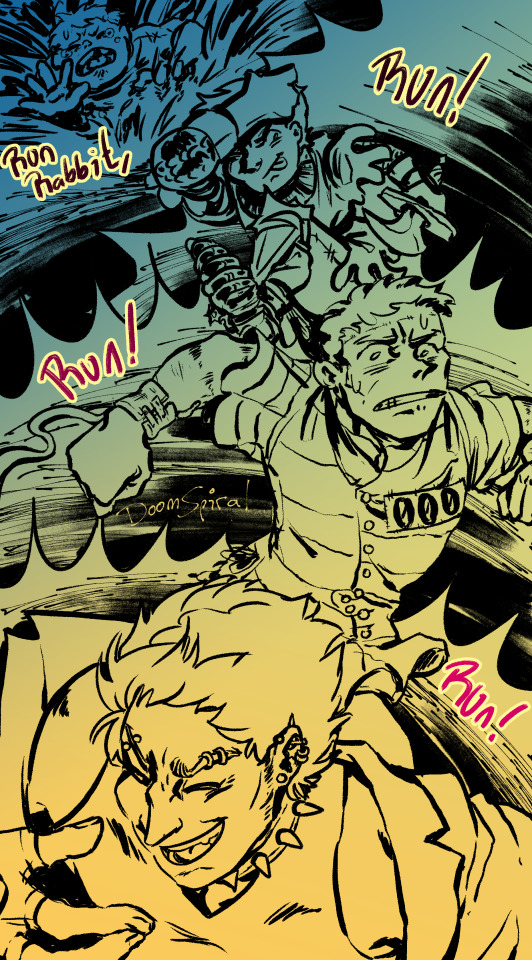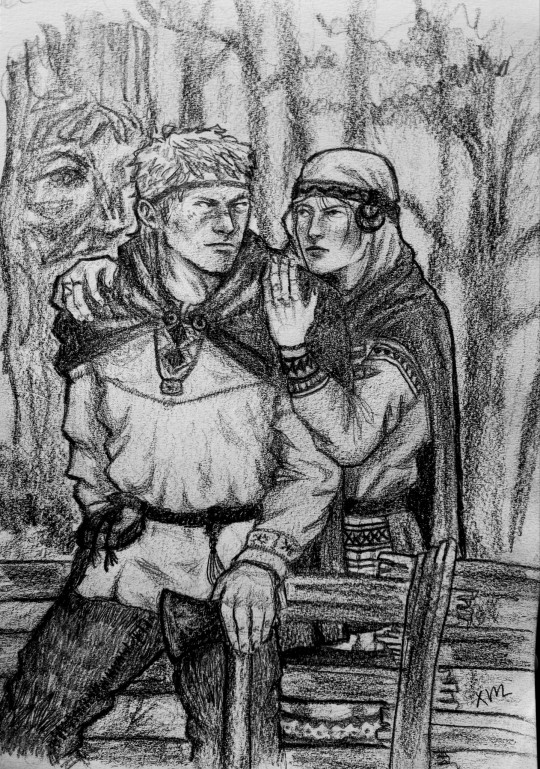#baltic prussia that is
Explore tagged Tumblr posts
Text

Prussia and the being who claims to be Teutonic Order, with their true selves shown
#baltic prussia that is#w perkunas' halo of fire 😘#my art.#hws prussia#hws teutonic knights#see hes an oc#But he ISNT ACTUALLY THE KNIGHTS HE IS A FUCKIN SAXON BUMB ASS DEMON WHO PRETENDS#bc like how would the order acrually have a rep lol#also pru fucking HATES that guy
16 notes
·
View notes
Text

I wanted to join that 'International Miku' trend that is going on on Twitter. But there were already too many gorgeous mexican Mikus... but probably not a single baltic prussian Miku 😎 (if there are already, then I want to see them! <3 )
35K notes
·
View notes
Text

I swear I sat down to draw a ship without Gil in it
#if you saw me use this pose before no you didn’t#I like it a lot bro… 😔#I was gonna draw robul cuz they are so married couple cute#but lietpru foiled me again#I tried to finally learn how to render metal I’m pretty happy with it but it could be better :P#different kind of rendering for this one#this man will not let my soul go#get out of my head or start paying rent fucker#digital art#my art#fanart#hetalia#hws prussia#hws lithuania#lietpru#pruliet#aph prussia#aph lithuania#gilbert beilschmidt#tolys laurinaitis#man I wanna draw the Baltic trio next they’re fun#wish me luck on that#you stay away from me gil
514 notes
·
View notes
Text
I've been looking at a lot of face family fanart lately, as well as some Tomato Gang fanart. I did notice that, for the second one, there wasn't as much fanart of in the Western fandom (but there's a ton in the Japanese fandom).
That made me wonder, which Hetalia Family/Group is the favorite of the Western fandom?
#hetalia#hws#hetalia world stars#aph italy#aph germany#aph america#aph france#aph prussia#aph romano#hetalia polls#aph portugal#aph spain#aph south italy#aph baltics#aph austria#aph liechtenstein#aph lithuania#aph latvia#aph nordics#aph scotland#aph korea#aph wales#aph england#aph finland#aph sweden#aph denmark#aph norway#aph iceland#aph hre#aph holy roman empire
98 notes
·
View notes
Text
An extraordinary city on the Baltic Sea (1)
At night the long journey comes to an end... The railway station is the first showcase of the city, which for centuries was the largest and richest port on the Baltic Sea. Welcome to Gdańsk :)





#photography#sunrise#railway#rail#trip#travel#sea#medieval#architecture#rail station#train station#urban photography#poland#polska#photoshoot#photographer#railroad#night#night train#prussia#prusy#nord#polish#europe#baltic#teutonic#historic#landscape#pier#pierced
23 notes
·
View notes
Text
Hetalia Headcanons: Nation Physiology- Death
Tw: Discussions about death and cultural destruction
In a previous post, I discussed both canon and headcanon ideas about how immortality works. Yet, how does a nation die? It certainly seems like they can endure a lot. Well, this post shall discuss what can and what cannot kill a nation.
Before we get any further though, I will need to discuss something very important if we are to understand this topic: nation vs state.
Nations and states are actually not synonyms of each other, despite many using them as such. In fact, the distinction is important enough for this discussion that I have decided to make sure we are all on the same page when it comes to the differences between them.
Instead of being long-winded though, I have actually put a very useful graph under the cut that will quickly compare the differences between the two:

(Third row from the bottom is wrong. I believe it is supposed to be "Not as stable as a nation" and "More stable than a state.")
In canon, the characters are exclusively referred to as nations, not states. While these things can often coincide, they are not synonyms. I'd also argue that Hima does not use it as a synonym. The characters have been pretty consistently made to represent the nations, or the religious/cultural/ethnic parts of their respective groups (ex: France is not simply the modern borders of the nation-state in today's Europe, he represents the French people and their culture).
Nations have also been shown to almost universally exist before their state does. As an example, America was born before the official establishment of the United States of America (1776 or 1789). If America were simply a state and not a nation, this would not be the case.
This distinction here will actually be very important in understanding what can or cannot kill a nation going forward, so that is why I felt the need to make this distinction clear.
So, using both canon and history, this is what I came up with:
Nations very rarely, if ever, die from occupation. Just about every nation has been occupied at some point. Just as an example, the original strips took place during WW2 when Germany occupied the majority of Europe, yet all those European nations continued to exist. Russia occupied the Baltics as the Soviet Union yet they continued to exist. Vietnam was colonized by France until 1954, yet we wouldn't say she was only born in 1954. A more ancient example is Ancient Rome. We see that, when an empire conquered territories, those nations remained. When the Roman Empire occupied land in Ancient Egypt, Ancient Greece, and various nations in Europe, all these nations still remained. At its height, the Roman Empire covered the majority of Europe, the Anatolian Peninsula, the Levant, parts of Arabia, and North Africa. Yet, I am positive all those nations in these areas continued to live but only as part of "his house," so to speak. In canon, characters who are occupied by foreign nations refer to it as living in the other nation's house (ex: the Baltics said they lived in "Russia's House" when they were part of the Soviet Union). Already, we can see why the distinction between state and nation is important. If they were states, they would not survive the occupation.
Territory changes rarely ever kill a nation. Nations in canon are constantly gaining and losing territory. This does not kill them. Even civil wars, despite popular headcanon belief, don't seem to kill nations. As an example, China is canonically over 4,000 years old. Yet, he has had his territory divided by civil wars hundreds of times over his history. In fact, it was such a prevalent thing, it even got its own term coined to describe it: the dynastic cycle. While this graph doesn't show it, you should keep in mind that each time it gets to the part where people revolt, the dynasty would often split into several different states. Here is a map of what this region looked like in 1936, right before WW2.
Loss of state or lack of state borders does not necessarily kill a nation. There is nothing in canon to indicate one way or the other, but I choose to believe that nations can exist even if they don't have official territory to call their own. To act like state borders are the only thing that determines a nation seems to deny the legitimacy of nations that were always nomadic or were forced into a nomadic life due to conquerors ousting them from their homeland. Native Americans groups were sometimes nomadic or were forced out of their home territory by the US government, yet I would not feel comfortable saying that means they weren't ever real nations (in the case of them always being nomadic) or that they ceased to exist as a nation of people (in the case of being forced from their homeland). There are/have been a lot of diasporas of people in the world who were either ousted from their homelands or always nomadic including the Native Americans, the Sami, the Romani, the Jews, the Ainu, the Aboriginal Australians, and more. All of these groups would have or still have either one or multiple personas for their groups, regardless of the fact that they didn't have a state to call their own for a long period of their history. Some of these groups have since been able to get state borders of their own (ex: the Cherokee Nation has a reservation covering multiple parts of Oklahoma). This is not the case for all these groups. This is because some of these groups either have no interest in a state of their own (the various Romani groups) or are interested, but have been denied (the Ainu). Also, the amount of personas they would have varies because not all of these terms refer to a single distinct group. For example, there would most likely be a single persona for the Ainu, but multiple for "Native America" as this term refers to over five hundred different nations native to North America that are around today, and each would most likely have their own persona.
So, with all of that being said, what can kill a nation? Simply put:
The destruction of a distinct national identity of a nation of people. This might seem self explanatory but it requires a bit more explanation. Basically, a nation can exist as long as their people do. "Existing" in this case refers to both physically existing and to culturally existing. So, for a nation to die, they either need to experience the complete destruction of their culture, or the complete death of all their people, or a combination of these two. Let's use a nation that canonically died: Ancient Rome. While I said that states don't need to exist to keep nations alive, they can often be intertwined with the national identity of a people so, in a case where nation-states are the same like Grandpa Rome, the destruction of the state can lead to the death of a persona. The fall of the Western Roman Empire brought about the collapse of the Roman identity (in the West, at least) and now, today, you will not meet someone who identifies with the language, religion, and culture of Rome. Nobody identifies as a Roman, at least none who were part of the original ancient culture that Grandpa Rome would have represented. Basically, his culture was effectively wiped out, so he died.
While a lack of state borders in itself won't kill, it can compound the problems that do kill a nation. If death is caused by the loss of a distinct cultural identity unique to that nation group of people, then states can often be very useful in maintaining these cultures. State borders are often founded around distinct nation groups or the formation of states can cause unique nation groups to rise up. So, while nations can exist without state borders, there is also no denying how important they can be with the formation and/or maintaining of national identities. So, while losing state borders in itself won't kill a Hetalia nation, it might lead to circumstances that can kill them aka, the death of their culture.
With all that being said, national identity can be a bit fluid. The culture of China during the Shang dynasty is not the same as the culture found in the People's Republic of China today, yet both are represented by the same persona. I think changes in cultures will not kill a nation as long as you can trace their culture's path pretty linearly and it progresses naturally. One really absurd example of this is Prussia. First he was the Teutonic Knights, then Prussia, and then West Germany. Those are some pretty big leaps (and honestly, I think they don't even make sense and only happened to keep him alive because he is a popular character).
All of this is to say that what ultimately kills a nation is the loss of their people and culture that represents their nation, the culture being the biggest factor.
A nation can die if their people completely assimilate with another culture, destroying their own distinctive national identity they represent. A nation can die if the people comprising their nation all perish, leaving no one left alive that was part of that distinct culture. A nation can die if their people go through a sudden and extreme enough change of cultural identity that they are basically a new group. A nation can die if they lose their state borders and, either gradually or suddenly, the people of the nation associated with that state loses their national identity.
A nation does not die from civil war as long as one or multiple of the states involved still represent the culture of the nation persona. A nation does not die from the loss of land, change of territory, or even complete loss of all land as long as a group exists that still holds onto the national identity associated with their nation persona. A nation does not die from occupation as long as the group occupied keeps a distinct sense of nationally identity associated with the nation persona.
Well, that's all. Thank you for coming to my TED Talk! I'd love to hear your thoughts. Also, if I got any history wrong, feel free to correct me. I did my best to research, but mistakes sometimes still happen.
#hetalia#hetalia headcanons#hetalia nation physiology#aph america#hws america#hws roman empire#aph roman empire#aph rome#hws rome#hws france#aph france#aph china#hws china#aph germany#hws germany#hws prussia#aph prussia#hws vietnam#aph vietnam#aph russia#hws russia#hws baltics#aph baltics
50 notes
·
View notes
Text
What I love about Baltic mythology is that the Thunder God isn't actually The Boss here. He's just sort of a policeman, punishing the wicked and the damned with his lightnings, and he doesn't seem to be happy with his job (that's probably why they describe him as Old, Grey-haired and Stressed XD). The main God is just a silly guy who loves causing Stories TM and being mysterious and annoying, like in K6BD. He also has thousands of children... just like in K6BD.
19 notes
·
View notes
Note

Hi bookneat! A fan here!
I was hoping you'd try this out on your characters. I found it on Pinterest. Idk why, seeing this axis reminded me of your Roderich and Johann. No, actually everyone in your fic definitely has a place here. I can already see Roderich's name somewhere in the upper half.
Luv ya!
OH MY GOD I FOUND IT JFKCFISKFJ!

Roderich isn’t coping but neither is Johann…
#hetalia#hws austria#hws prussia#hws bavaria#hws hesse#hws germany#hws saxony#hws baltics#hetalia headcanons#em speaks#Besatzung
10 notes
·
View notes
Text

Don't give the farmer his fun!
I've tried to color this multiple ways now and its not happening, you get a gradient.
#hetalia#aph prussia#aph teutonic knights#mein#1) baby baltic 2) teutonic knight 3) victorian asylum patient 4) berliner punk
146 notes
·
View notes
Text

10thish century pagans, nat and gil, having a moment together while gil takes a break from chopping wood for her
#my art.#hws prussia#hws belarus#hetalia#prubela#im SO pleased with this#baltic prussia#ftw#pagan hetalia#spent so long tryijg to figure out their outfits !!!#historical hetalia
132 notes
·
View notes
Note
What does Baltic Prussian mean
The original prussian people. Older than medieval (there is no exact date of when they started, but they're very very ancient.)
They where in the baltic coast, a place named Twangste (later when it was a German territory it was called Konigsberg, and now the territory is Russian, Kaliningrad).
Their culture and them were almost erased in every form, but many descendants claim to be Baltic prussians and still teach us things about their ancient culture :) for example in YouTube there are many videos about their language.
I don't have any relation with them but I admire their perseverance and the fighting to spread their culture ❤️ I think they deserve more appreciation.

37 notes
·
View notes
Text
Gilbert and Erzsé.... they're one word in two fonts. Soldier and warrior. Dragoon and hussar. Monk and priestess. He lashed himself to Ludwig, to make a nation where Prussia could not possibly be dominant on its own. She wed herself to Roderich, because exchanging her sword for the crown of an empress was better than losing everything. These parallel paths, only intersecting when there is a boy to teach to ride and to fight and to read and sing. Or when corsets finally unhook and a chemise can be pulled down and a mouth can lavish attention from her throat to her thighs....
#between the devil and the deep queue sea#hws prussia#hws hungary#pruhun#hunpru#prussia x hungary#gilbert and erzse || heart of iron beat for me#gilbert || from this baltic cannonball#Erzse || In raptures I embrace
78 notes
·
View notes
Text
do you ever just think about gilbert killing(?) baltic prussia, taking its name and territory and existing under their name? because i want a manga script about THAT
9 notes
·
View notes
Text
Latvia, rushing into the room: It’s terrible, just terrible! I am so upset!
Lithuania: Raivis, honey, sit down! Sweetheart, tell us all about it. Gilbert, would you get Raivis some water?
Prussia: What are they gonna do with water? Has water ever made you feel better when you were upset? Have you ever heard anyone say, “Thank God, the water’s here!”?
#aph latvia#hws latvia#aph prussia#hws prussia#aph lithuania#hws lithuania#hetalia#hetalia incorrect quotes#the real baltic trio
49 notes
·
View notes
Text
I finally updated:
Soviet-era fic, just some guys in a house, what emotional crimes will they commit?
#hws latvia#hws russia#hws prussia#hws lithuania#hws estonia#hetalia fanfiction#hws baltic trio#i wrote myself this soviet era russia and baltic trio fic because i have always wanted one
7 notes
·
View notes
Note
More Prussija pls? If you're ok with it

Luck wasn't on his side...
#hetalia#hws baltic prussia#aph baltic prussia#hws prussia#aph prussia#the baltic family#hetalia memes#historical hetalia
14 notes
·
View notes